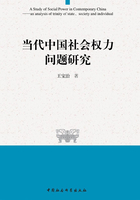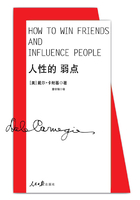There was still a very strong Tory party in England. But that party was in opposition. Many of its members still held the doctrine of passive obedience. But they did not admit that the existing dynasty had any claim to such obedience. They condemned resistance. But by resistance they meant the keeping out of James the Third, and not the turning out of George the Second. No radical of our times could grumble more at the expenses of the royal household, could exert himself more strenuously to reduce the military establishment, could oppose with more earnestness every proposition for arming the executive with extraordinary powers, or could pour more unmitigated abuse on placemen and courtiers. If a writer were now, in a massive Dictionary, to define a Pensioner as a traitor and a slave, the Excise as a hateful tax, the Commissioners of the Excise as wretches, if he were to write a satire full of reflections on men who receive "the price of boroughs and of souls," who "explain their country's dear-bought rights away," or "whom pensions can incite, To vote a patriot black, a courtier white," we should set him down for something more democratic than a Whig.
Yet this was the language which Johnson, the most bigoted of Tories and High Churchmen held under the administration of Walpole and Pelham.
Thus doctrines favourable to public liberty were inculcated alike by those who were in power and by those who were in opposition.
It was by means of these doctrines alone that the former could prove that they had a King de jure. The servile theories of the latter did not prevent them from offering every molestation to one whom they considered as merely a King de facto. The attachment of one party to the House of Hanover, of the other to that of Stuart, induced both to talk a language much more favourable to popular rights than to monarchical power. What took place at the first representation of Cato is no bad illustration of the way in which the two great sections of the community almost invariably acted. A play, the whole merit of which consists in its stately rhetoric sometimes not unworthy of Lucan, about hating tyrants and dying for freedom, is brought on the stage in a time of great political excitement. Both parties crowd to the theatre. Each affects to consider every line as a compliment to itself, and an attack on its opponents. The curtain falls amidst an unanimous roar of applause. The Whigs of the Kit Cat embrace the author, and assure him that he has rendered an inestimable service to liberty. The Tory secretary of state presents a purse to the chief actor for defending the cause of liberty so well. The history of that night was, in miniature, the history of two generations.
We well know how much sophistry there was in the reasonings, and how much exaggeration in the declamations of both parties. But when we compare the state in which political science was at the close of the reign of George the Second with the state in which it had been when James the Second came to the throne, it is impossible not to admit that a prodigious improvement had taken place. We are no admirers of the political doctrines laid down in Blackstone's Commentaries. But if we consider that those Commentaries were read with great applause in the very schools where, seventy or eighty years before, books had been publicly burned by order of the University of Oxford for containing the damnable doctrine that the English monarchy is limited and mixed, we cannot deny that a salutary change had taken place. "The Jesuits," says Pascal, in the last of his incomparable letters, "have obtained a Papal decree, condemning Galileo's doctrine about the motion of the earth. It is all in vain. If the world is really turning round, all mankind together will not be able to keep it from turning, or to keep themselves from turning with it." The decrees of Oxford were as ineffectual to stay the great moral and political revolution as those of the Vatican to stay the motion of our globe. That learned University found itself not only unable to keep the mass from moving, but unable to keep itself from moving along with the mass. Nor was the effect of the discussions and speculations of that period confined to our own country. While the Jacobite party was in the last dotage and weakness of its paralytic old age, the political philosophy of England began to produce a mighty effect on France, and, through France, on Europe.
Here another vast field opens itself before us. But we must resolutely turn away from it. We will conclude by advising all our readers to study Sir James Mackintosh's valuable Fragment, and by expressing our hope that they will soon he able to study it without those accompaniments which have hitherto impeded its circulation.















